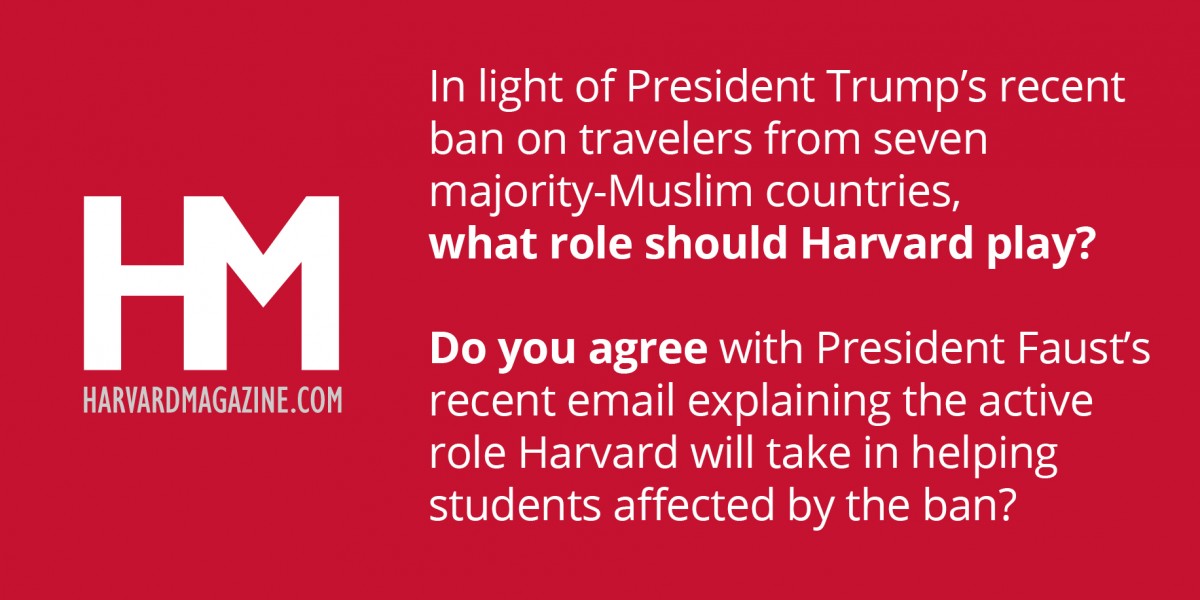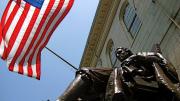Yesterday, President Drew Faust reached out to the Harvard community to respond to Friday’s White House executive order banning travelers to the United States from several predominantly Muslim countries. The lengthy letter, titled “We Are All Harvard,” appears to break from her past hesitance to take political positions (despite pressure from the student body): “National security is, of course, an essential element of our nation’s immigration policy,” she wrote. “But we are confident those considerations can be fairly addressed while avoiding the large-scale disruption and distress that the new restrictions portend—and while honoring the ideals of openness, nondiscrimination, and opportunity that our universities and our nation hold dear.” In addition to defending Harvard’s internationalism, the letter detailed the following actions:
- A full-time attorney will be appointed to Harvard Law School’s Immigration and Refugee Clinic to focus on representing undocumented Harvard students.
- The Harvard International Office has written to Harvard’s international community to offer immediate advice.
- The University will hold a town hall on Wednesday, February 1, where Harvard Law’s Immigration and Refugee Clinic will offer information on the situation, and respond to questions.
- The launch of a website to provide resources to undocumented students and their families
- The University will appoint a full-time Muslim Chaplain at Harvard, to support members of the Islamic community at Harvard
A full copy of the statement can be found here.
In light of President Faust’s decision to take action in response to Friday’s executive order, we invite members of the Harvard community to share their thoughts about the role the University should play. We welcome perspectives from all sides of the issue, and look forward to sharing these views, with the hope that they will create a productive dialogue. Please direct your response to harvard_magazine@harvard.edu.










